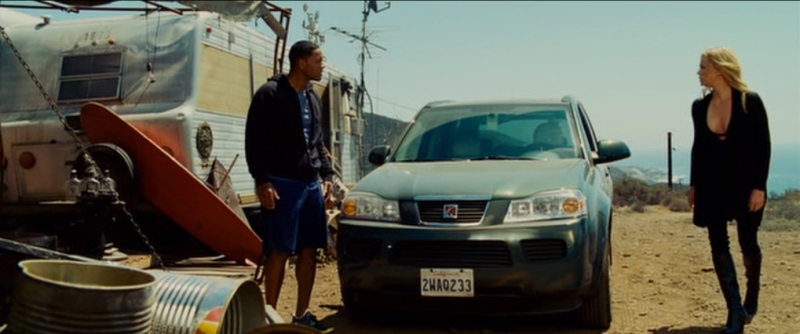The first is the well known "contrite basketball star" style press conference before Hancock willingly goes to jail.

I apologize to the people of Los Angeles. But my behavior has been improper and I accept the consequences. I ask my fellow Angelinos for their patience and understanding.
(crowd yelling)
Life here can be difficult for me. After-all I'm the only one of my kind.
During my incarceration I will be participating in alcohol and anger management treatment. You deserve better from me. I can be better. I will be better.
This is... a joke. Like, the words are decent, they accept guilt, give us some insight into his thinking, and talk about what progress he is trying to make going forward. (It was almost certainly written by Ray.) And yet, despite hitting all the approved points, it's completely disappointing. The shouting crowd and listening newscasters don't take it seriously. Everyone treats this as merely part of some ritual, and an unsatisfying one at that.
Whole books have been written about what needs to go into an apology for it to be "real", but the more you try to find a specific formula and fit it - especially so you can achieve some sort of desired outcome - the less convincing it is. There's nothing more we could tell Hancock to say here, since the possibility of connection and true forgiveness is already foreclosed.
***
Now let's jump to the second half . Hancock has just had a superhuman fist fight with Mary, who is completely losing her shit over her history with Hancock that he has no memory of.

MARY: I hate you!
HANCOCK: I’m sorry! Who ever I am, What ever I did-- Look at me-- I’m sorry!
(Transcripts don't really do this justice, since the whole point is to contrast the words, suitable or unsuitable, with the power, or lack of power, of the delivery.)
This is raw. According to any rules of apology, it fails: it doesn't admit specific actions, it doesn't talk about what he'll do to make things better, and the apology is forcefully interjected to someone who rather not hear it. But because it lacks all of these things, the only motive left by it is pure emotional power. Hancock for once realizes the pain and devastation he has caused, and even if he was ignorant in it, he still accepts responsibility for it. (Casual segue to tomorrow's post.)
This is probably the moment of Hancock's apotheosis to humanity. Until now he was trying to behave better so that people would treat him better, and he could stop being so lonely. But now he realizes... he was a real person, who had effects on people he cares/d about, which he regrets for their own sake.
***
Between this contrast, the villainous Stanford professor, and the scene with the cop under siege who Hancock asks permission to rescue, there's a definite sub-theme of "respectable words are fake- they are impractical or hypocritical". This is not uncommon for films in our culture, as they like to laud authenticity.
But this movie has a major theme that appearance matters. Ray's PR attempts to revamp Hancock's image are genuine and work. Art has moral importance, which is also a pretty common belief for anyone in the film industry.
How do we reconcile these things? How do we go about creating an authentic mask, which may sound like a contradiction in terms. Is the movie just incoherent, or is there such a thing as a non-hypocritical surface?
These are serious questions to think about, which I leave you with.
No comments:
Post a Comment